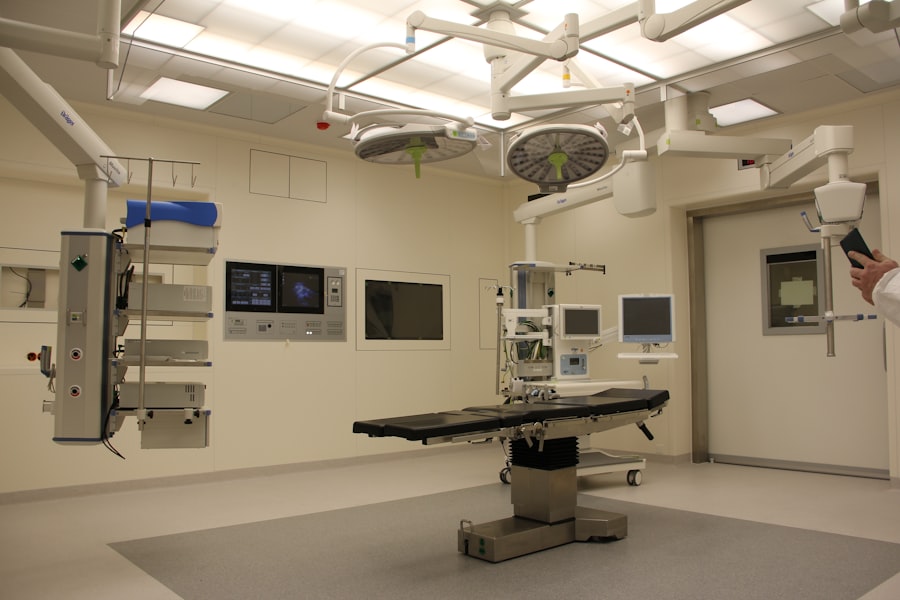A medical courier is a specialized delivery professional responsible for transporting medical items, including laboratory specimens, pharmaceuticals, medical equipment, and other healthcare-related materials. Unlike standard couriers, medical couriers operate within the healthcare sector, where the timely and secure delivery of sensitive items is crucial. Their work often involves navigating complex regulations and ensuring compliance with health and safety standards, which are paramount in the medical field.
Medical couriers may work for hospitals, laboratories, pharmacies, or independent courier services that focus on healthcare logistics. The role of a medical courier extends beyond mere transportation; it encompasses a commitment to maintaining the integrity of the items being delivered. For instance, when transporting blood samples or other biological materials, couriers must ensure that these items are kept at specific temperatures and handled with care to prevent contamination or degradation.
This level of responsibility requires not only physical skills but also a deep understanding of the medical protocols involved in handling various types of medical materials.
Key Takeaways
- A medical courier is a professional responsible for transporting medical supplies, specimens, and equipment between healthcare facilities, laboratories, and patients’ homes.
- The role of a medical courier includes ensuring the safe and timely delivery of medical items, maintaining proper documentation, and adhering to strict safety and confidentiality protocols.
- Qualifications and skills required for medical courier jobs include a valid driver’s license, knowledge of medical terminology, attention to detail, and the ability to handle and transport delicate and hazardous materials.
- Medical couriers play a crucial role in the healthcare industry by facilitating the efficient and reliable transportation of medical items, contributing to the timely diagnosis and treatment of patients.
- Working as a medical courier comes with challenges such as long hours and exposure to potentially hazardous materials, but it also offers rewards such as job stability and the opportunity to make a meaningful impact on patient care.
The Role and Responsibilities of a Medical Courier
The primary responsibility of a medical courier is to ensure the safe and timely delivery of medical items. This includes picking up specimens from healthcare facilities, transporting them to laboratories for analysis, and delivering medications to pharmacies or patients’ homes. Medical couriers must be adept at planning efficient routes to minimize delays, as time is often of the essence in healthcare settings.
For example, a courier delivering a time-sensitive blood sample for a critical test must navigate traffic and other obstacles to ensure that the sample arrives at the lab within the required timeframe. In addition to transportation duties, medical couriers are often responsible for maintaining accurate records of their deliveries. This includes logging pick-up and drop-off times, obtaining signatures from recipients, and ensuring that all items are accounted for during transit.
They may also need to communicate with healthcare professionals regarding any issues that arise during the delivery process, such as delays or discrepancies in the items being transported. This level of communication is vital in maintaining trust and reliability within the healthcare system.
Qualifications and Skills Required for Medical Courier Jobs

To become a medical courier, candidates typically need a high school diploma or equivalent, although some employers may prefer candidates with additional education or experience in healthcare or logistics. A valid driver’s license and a clean driving record are essential, as couriers spend a significant amount of time on the road. Familiarity with local traffic laws and routes can greatly enhance efficiency and safety during deliveries.
Some positions may also require background checks due to the sensitive nature of the materials being transported. In terms of skills, medical couriers must possess strong organizational abilities to manage multiple deliveries efficiently. Attention to detail is critical, as even minor errors can have significant consequences in a healthcare setting.
Additionally, effective communication skills are necessary for interacting with healthcare professionals and patients alike. Couriers should also be physically fit, as the job may involve lifting heavy items or navigating stairs and other obstacles during deliveries. Familiarity with medical terminology can be an asset, enabling couriers to understand the specific needs associated with different types of medical items.
The Importance of Medical Couriers in the Healthcare Industry
| Metrics | Data |
|---|---|
| Timely Delivery of Medical Samples | 98% on-time delivery rate |
| Accuracy in Transporting Specimens | 99.5% accuracy rate in specimen transportation |
| Importance in Emergency Situations | Medical couriers play a crucial role in transporting urgent samples for critical patient care |
| Regulatory Compliance | Adherence to strict regulations for handling and transporting medical samples |
| Cost-Effectiveness | Medical couriers provide cost-effective transportation solutions for healthcare facilities |
Medical couriers play an indispensable role in the healthcare industry by ensuring that essential medical supplies and specimens are delivered promptly and securely. Their work directly impacts patient care; for instance, timely delivery of lab results can lead to quicker diagnoses and treatment plans. In emergency situations, such as delivering organs for transplant or critical medications for patients in urgent need, the role of a medical courier becomes even more pronounced.
The efficiency and reliability of these couriers can significantly influence patient outcomes. Moreover, medical couriers help maintain the integrity of the healthcare supply chain.
This is particularly important in an era where healthcare facilities face increasing scrutiny regarding their operational practices. The presence of trained medical couriers ensures that healthcare providers can focus on delivering quality care while relying on logistics professionals to manage the complexities of medical transportation.
Challenges and Rewards of Working as a Medical Courier
Working as a medical courier comes with its own set of challenges. One significant challenge is the unpredictable nature of traffic and weather conditions that can affect delivery times. Couriers must be prepared to adapt quickly to changing circumstances while maintaining a high level of professionalism.
Additionally, they may encounter stressful situations when dealing with urgent deliveries or when faced with tight deadlines. The pressure to perform accurately under such conditions can be daunting. Despite these challenges, many find working as a medical courier to be rewarding.
The knowledge that their efforts contribute directly to patient care can provide a strong sense of purpose. Additionally, the job often offers flexibility in terms of hours worked, which can be appealing for those seeking non-traditional work schedules. Many couriers enjoy the independence that comes with being on the road rather than confined to an office environment.
The opportunity to interact with various healthcare professionals and patients also adds an enriching dimension to the role.
Career Growth and Opportunities for Medical Couriers

Advancement Opportunities
Many couriers start in entry-level positions but can advance to supervisory roles or logistics management within healthcare organizations over time. With experience, some may choose to specialize in specific areas such as hazardous materials transport or become trainers for new couriers entering the field.
Enhancing Qualifications
Pursuing further education or certifications related to logistics or healthcare can open doors for career advancement. For instance, obtaining certifications in hazardous materials handling or supply chain management can enhance a courier’s qualifications and make them more competitive in the job market.
Future Growth Opportunities
As healthcare continues to evolve with advancements in technology and changes in regulations, there will likely be new opportunities for growth within this field.
Tips for Landing a Job as a Medical Courier
For those interested in pursuing a career as a medical courier, several strategies can enhance their chances of landing a job in this competitive field. First and foremost, gaining relevant experience through internships or volunteer positions in healthcare settings can provide valuable insights into the industry and help build essential skills. Networking with professionals already working in logistics or healthcare can also lead to job opportunities or mentorship.
Additionally, tailoring resumes to highlight relevant skills such as attention to detail, organizational abilities, and communication skills can make candidates stand out to potential employers. Preparing for interviews by familiarizing oneself with common questions related to logistics and healthcare scenarios can also be beneficial. Demonstrating knowledge about industry regulations and best practices during interviews can further showcase a candidate’s commitment to professionalism in this critical role.
The Future of Medical Courier Jobs
The future of medical courier jobs appears promising as the demand for efficient healthcare logistics continues to grow. With advancements in technology such as real-time tracking systems and automated delivery solutions, couriers will likely see improvements in their operational efficiency. These technologies can help streamline processes, reduce errors, and enhance communication between couriers and healthcare providers.
Moreover, as telemedicine becomes more prevalent, there will be an increased need for reliable delivery services that can transport medications and medical supplies directly to patients’ homes. This shift could lead to new opportunities for medical couriers who are willing to adapt to changing industry dynamics. As healthcare systems increasingly prioritize patient-centered care, the role of medical couriers will remain vital in ensuring that patients receive timely access to necessary medical resources.
If you are interested in exploring the philosophical aspects of the medical field, you may want to check out an article on Aristotle’s philosophy on Yimho.
This article delves into the concepts of form, matter, causation, actuality, and potentiality as they relate to the world of medicine. It offers a unique perspective on the foundational principles that underpin the practice of healthcare. To read more about this fascinating topic, visit here.
FAQs
What are medical courier jobs?
Medical courier jobs involve transporting medical supplies, specimens, and equipment between healthcare facilities, laboratories, and other medical facilities. This can include delivering blood samples, medical records, pharmaceuticals, and other sensitive materials.
What are the responsibilities of a medical courier?
The responsibilities of a medical courier typically include picking up and delivering medical supplies and specimens in a timely and efficient manner, ensuring the proper handling and transportation of sensitive materials, maintaining accurate records of deliveries, and adhering to all relevant safety and regulatory guidelines.
What qualifications are required for medical courier jobs?
Qualifications for medical courier jobs may vary, but typically include a valid driver’s license, a clean driving record, the ability to lift and carry heavy loads, good organizational and time management skills, and a strong attention to detail. Some employers may also require a high school diploma or equivalent.
What are the working conditions for medical couriers?
Medical couriers often work in a fast-paced environment and may be required to work irregular hours, including evenings, weekends, and holidays. They may also be exposed to various weather conditions and must be able to safely and efficiently navigate traffic and other potential obstacles while driving.
What are the career prospects for medical couriers?
The demand for medical couriers is expected to grow as the healthcare industry continues to expand. With experience, medical couriers may have opportunities for advancement into supervisory or management roles within courier services or healthcare facilities. Additionally, some medical couriers may choose to pursue further education and training in related fields, such as logistics or healthcare administration.























+ There are no comments
Add yours